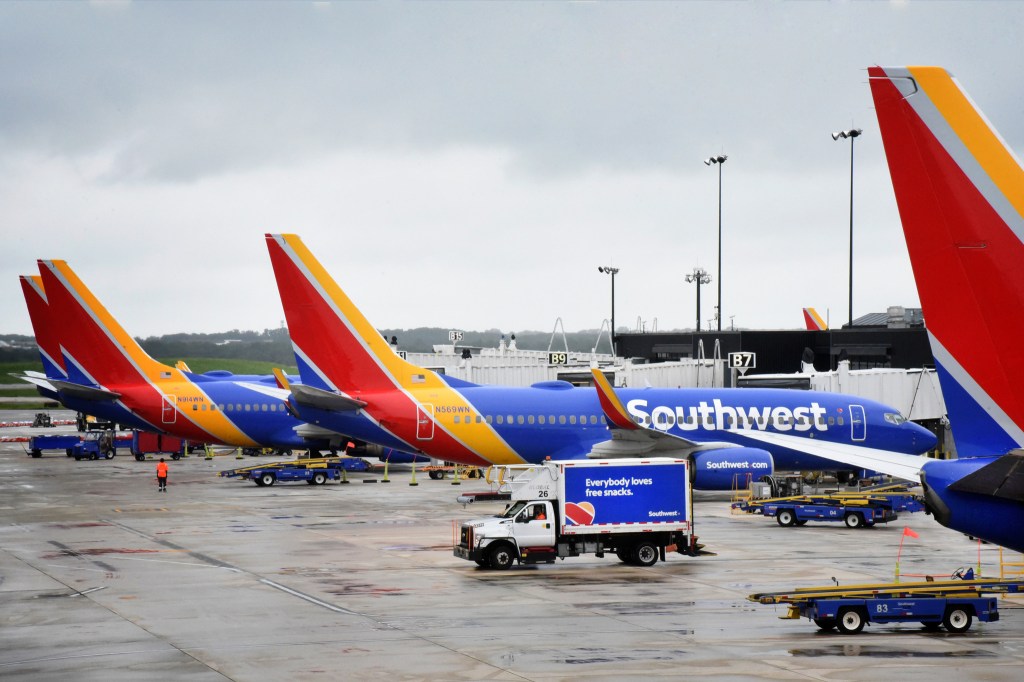Southwest Airlines, the largest carrier at Baltimore-Washington International Thurgood Marshall Airport, will start assigning seats and selling premium seating in a break from its more than 50-year tradition of open seating.
The airline said Thursday it is making the changes after finding that passenger preferences about seating options have changed. The moves also could generate revenue and boost financial performance, the company said.
Southwest also plans to redesign its boarding model and introduce redeye flights.
The airline became the nation’s biggest low-cost carrier because of its open economy seating policy. It is BWI Airport’s top passenger airline by market share and served nearly 70% of the airport’s customers in 2022, state figures show.
The Dallas-based carrier started its unusual boarding process decades ago as a way for the airline to save money, instead of assigning passenger seats. The airline requires customers to check in 24 hours before departure or pay extra to guarantee a better place in line.
But passenger preferences have evolved as people take longer flights and prefer a seat assignment, the company said. The company said 80% of Southwest customers and 86% of potential customers prefer an assigned seat.
And those who switch airlines cite Southwest’s open seating as the top reason for the change. Southwest’s new premium seating will offer extended legroom, which will account for about a third of seating offerings.
“Moving to assigned seating and offering premium legroom options will be a transformational change that cuts across almost all aspects of the company,” said Bob Jordan, president and CEO, in Thursday’s announcement.
Southwest also plans to introduce overnight, redeye flights in five markets, including Baltimore, which will have redeyes to Las Vegas, Los Angeles and Phoenix. Other redeyes will be offered between Las Vegas and Orlando and Los Angeles and Nashville.
Southwest announced the changes as it reported a sharp drop in second-quarter earnings despite higher revenue. It had announced in April that it was studying product preferences and expectations, including onboard seating.
Airlines are struggling with higher costs and reduced pricing power, especially on flights within the United States, as the industry adds flights faster than the growth in travel demand.
Southwest said its second-quarter profit fell 46% from a year earlier, to $367 million, as higher costs for labor, fuel and other expenses outstripped an increase in revenue. The results met Wall Street expectations.
The Associated Press contributed to this article, which will be updated.
Originally Published:

